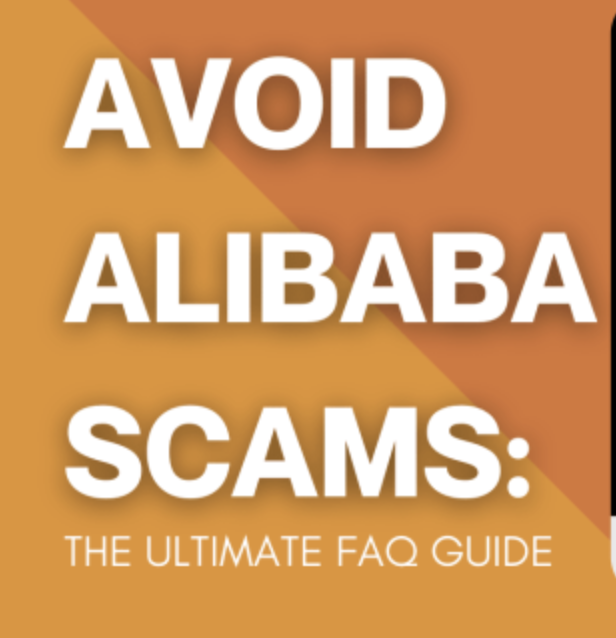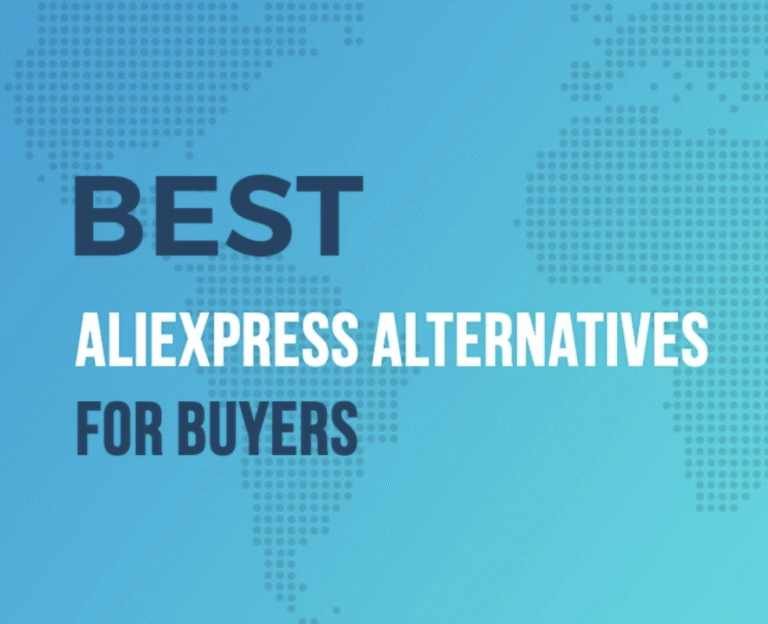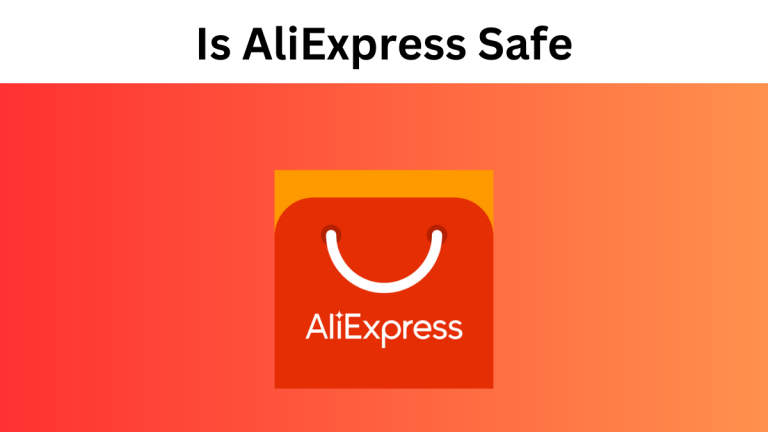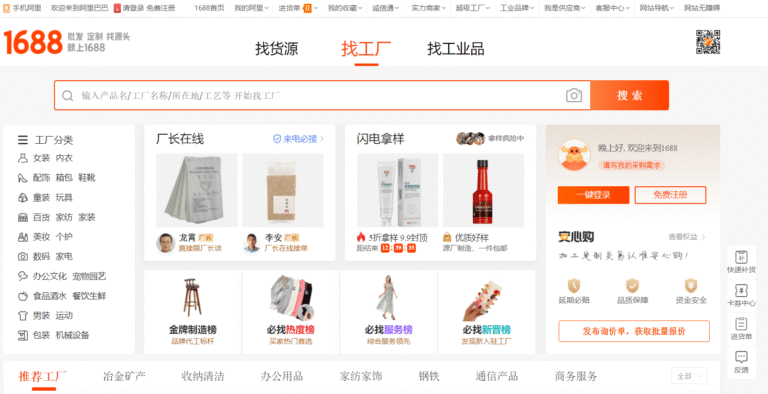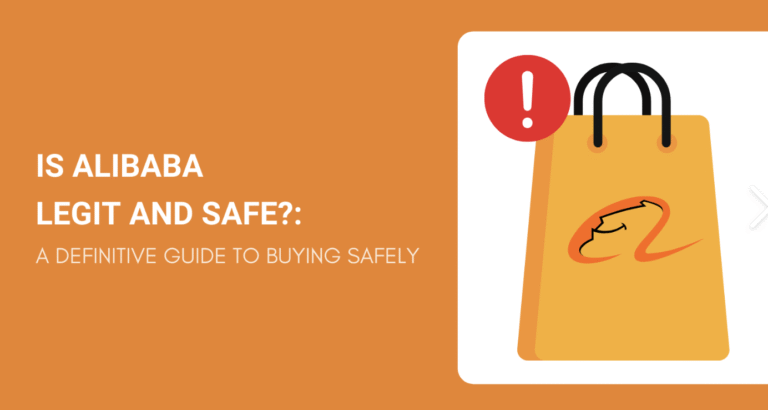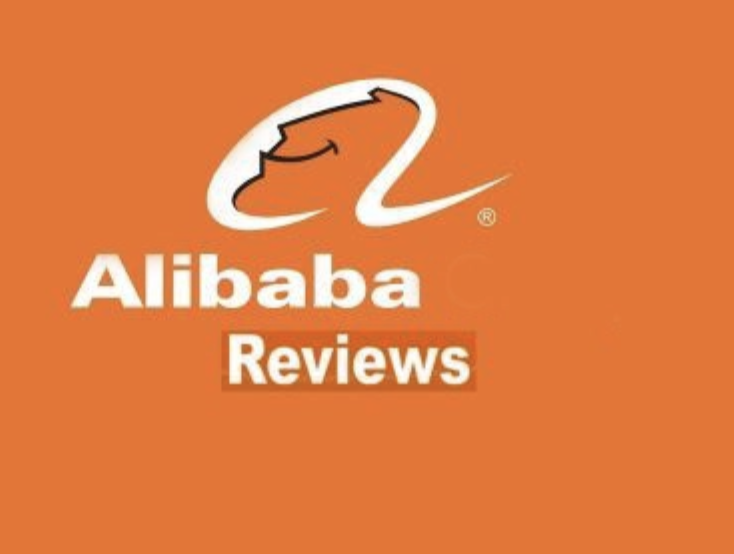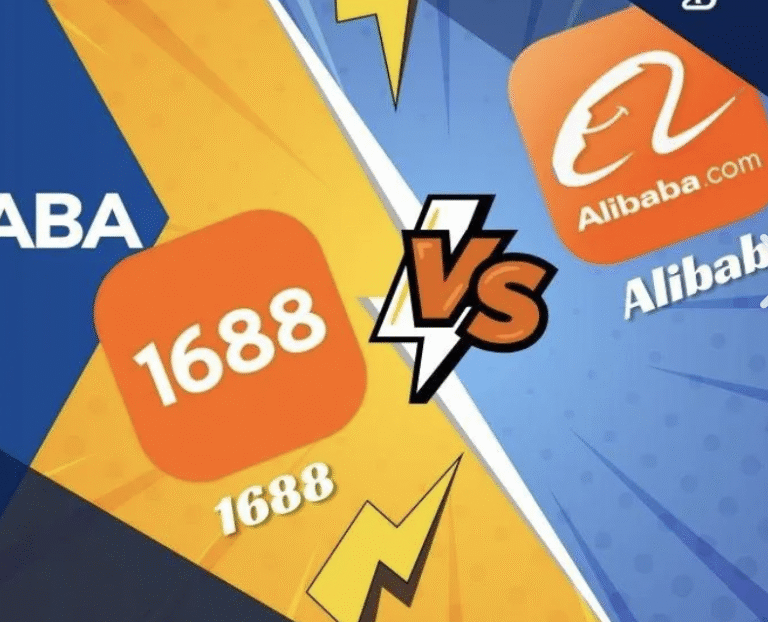How to Avoid Getting Scammed on Alibaba
Let’s be real—Alibaba is a giant in the world of B2B ecommerce. It connects millions of buyers to suppliers across the globe. But with its popularity comes a darker side: scammers looking to make a quick buck off unsuspecting entrepreneurs.
Despite Alibaba’s efforts to clean up the platform, getting scammed is still a major risk in 2025, especially if you’re new or unaware of how to protect yourself.
If you’ve ever Googled “I got scammed on Alibaba,” you’re not alone. Thousands of people have fallen for fake listings, counterfeit products, bait-and-switch tactics, or outright theft after wiring money overseas.
And here’s the worst part—recovering that money is often impossible if you didn’t follow the right steps.
But don’t let fear stop you from using Alibaba. When used correctly, it’s a goldmine of opportunities for ecommerce businesses, dropshippers, and brand builders.
The trick is learning how to separate legit suppliers from fraudsters and how to navigate the platform safely.
In this guide, we’ll walk through everything you need to know to avoid getting scammed on Alibaba—from red flags to safe payment methods to foolproof verification steps.
It’s not just about avoiding bad suppliers; it’s about becoming a savvy international buyer who knows how the game is played.
Table of Contents
Understanding How Alibaba Works for Buyers and Suppliers
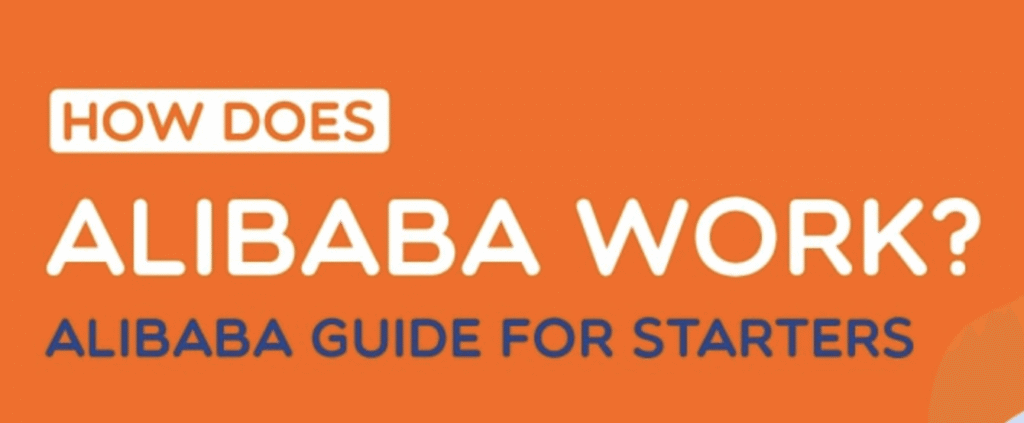
Alibaba’s Business Model Explained
To avoid scams, you first need to understand the system you’re working with. Alibaba is a marketplace—not a supplier. Think of it like Amazon, but for businesses. Instead of buying directly from Alibaba, you’re buying from third-party vendors hosted on the platform.
These vendors range from massive factories to tiny trading companies, and not all of them play fair. Some use stock photos, fake reviews, or unrealistic pricing just to get your attention. And Alibaba, while it tries to filter out the bad actors, doesn’t always catch them right away.
Here’s how it generally works:
- Buyers search for products, contact suppliers, and negotiate deals.
- Suppliers list products, manage listings, and try to attract orders.
- Alibaba acts as the middleman, offering tools like Trade Assurance and Verified Supplier to help with security—but the due diligence? That’s still on you.
If you understand that Alibaba isn’t the direct seller, you’ll be more cautious. That shift in mindset is key to avoiding trouble.
Why Not All Suppliers Are Verified
Just because a supplier is on Alibaba doesn’t mean they’re vetted. In fact, anyone can create an account, list products, and start selling—even if they’re operating out of a bedroom with no real inventory.
Alibaba offers several tiers of verification:
- Basic members – Anyone with an email can sign up.
- Gold suppliers – Paid members who pass a basic verification (but not necessarily background checks).
- Verified suppliers – These have gone through on-site inspections by Alibaba or third-party services. They’re more trustworthy, but still not immune to issues.
So, when you see a listing, check the supplier type. Avoid buying from suppliers who are not verified or who have no Trade Assurance badge. These are the ones most likely to scam you.
Most Common Types of Scams on Alibaba

Fake Product Listings
You see a listing for an iPhone 15 at $80. Sounds too good to be true? That’s because it is. Fake product listings are rampant on Alibaba, especially for high-ticket or branded items. Scammers use professional images to lure in buyers, then ship cheap knock-offs—or nothing at all.
If the price is drastically lower than the market average, it’s almost always a scam. No real manufacturer is going to sell a product at a loss just because you asked nicely. Use logic. Compare prices from multiple suppliers. Trust your gut.
Also, steer clear of listings that:
- Have blurry or stolen images
- Lack product details
- Offer ridiculously low MOQs (Minimum Order Quantities)
Bait-and-Switch Tactics
This is another dirty trick. A supplier sends you a high-quality sample, but when you place a bulk order, they ship substandard or different products entirely. By the time you realize it, it’s too late. Your money’s gone, and so is your trust.
To avoid this:
- Document everything.
- Sign a purchase agreement that outlines product specs.
- Do a final inspection before the goods leave the factory.
Payment Fraud and Advance Fee Scams
Some scammers pretend to be real suppliers but then request payments outside Alibaba (like through Western Union or bank transfer). Once you send the money, they vanish.
These frauds are often very professional. They might clone legit company profiles or use stolen certificates. That’s why it’s critical to never pay outside Alibaba unless you’re 100% certain of the supplier’s identity and reputation.
Red Flags to Watch Out for When Choosing a Supplier

Unrealistic Prices
Alibaba is known for offering wholesale prices—but that doesn’t mean rock-bottom prices on premium products. If the deal looks too good to be true, it probably is. Be especially wary of:
- Prices 40%+ below the average for similar listings
- Bulk discounts that make no financial sense
- High-value branded products listed at wholesale rates
Always compare pricing across multiple suppliers. If one seems way out of line, skip it.
Poor Communication or Vague Responses
Scammers don’t want to answer your questions. They rush you, avoid details, or say things like “we ship everything fast, no worry” without actually addressing your concerns.
Test your supplier by asking technical questions about:
- Product materials
- Production capacity
- Customization options
- Shipping timelines
Legit suppliers will have answers. Scammers will dodge, delay, or push you to pay quickly.
No Verified Badge or Limited Company Info
Alibaba makes it easy to check a supplier’s credentials. Look for:
- Verified badge on their profile
- Years of operation
- Factory location
- Product certifications
If you can’t find these, or if their business license looks sketchy, that’s your signal to walk away.
How to Verify a Legit Alibaba Supplier

Use Alibaba’s ‘Verified Supplier’ Program
One of the smartest ways to safeguard yourself from scams is to stick with Verified Suppliers on Alibaba. These suppliers go through a thorough vetting process, including third-party inspection and on-site verification by Alibaba. When you see the “Verified” badge on a supplier’s profile, it means:
- Their business license has been checked.
- They’ve been evaluated in person or virtually.
- Their factory and operations are legitimate.
Still, “Verified” doesn’t mean “flawless.” It just means they passed a basic vetting process. So use this as your first filter, not your only one. Always combine it with your own research and caution.
Here’s how to find verified suppliers:
- Use the filter on the left panel when searching for products.
- Look for the gold “Verified Supplier” badge.
- Click the badge to see details of their verification report.
If a supplier doesn’t have this badge, think twice. Especially if they’re offering high-value goods or large minimum order quantities.
Check Business License and Certificates
Don’t just take a supplier’s word for it—ask to see their business license, ISO certifications, or test reports. Any genuine factory or trading company in China should have no issue sharing these with you. Red flags to watch out for include:
- Blurry or low-resolution licenses
- Mismatched company names
- Expired or missing certifications
If possible, use tools like Made-in-China’s license lookup or third-party sourcing services to verify this info.
Also, ask for product-specific certifications if needed—like CE for European markets, FDA for food items, or RoHS for electronics. Scammers often fake these, so again, verify directly with the issuing bodies or use inspection services.
Ask for Factory Photos and Live Video Tours
Legit suppliers are proud of their manufacturing setup and often eager to show it off. You can request:
- Factory photos with staff and equipment
- A video walkthrough of their production line
- A live video call where they show real-time manufacturing
Scammers, on the other hand, will make excuses. They’ll claim “camera issues” or say the manager is “not available” for a call. Don’t fall for it.
If a supplier is unwilling to show you their workspace, that’s a giant red flag. Transparency is a strong indicator of trust.
Safe Payment Methods to Use on Alibaba
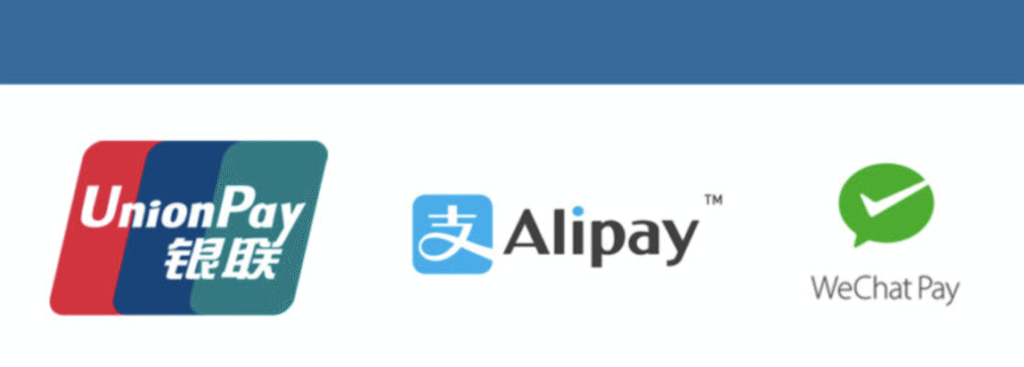
Why Trade Assurance is a Lifesaver
Alibaba’s Trade Assurance is hands-down the most secure way to pay on the platform. It works like an escrow system—your money is held by Alibaba until:
- The supplier ships the goods.
- You confirm the items meet your requirements.
If anything goes wrong—delayed delivery, incorrect items, or low quality—you can file a dispute and potentially get a refund. It adds a layer of trust to the transaction and keeps both sides accountable.
How to make sure you’re covered?
- Confirm Trade Assurance is active on the supplier’s page.
- Create the order through Alibaba, not outside.
- Communicate through the platform to have a record of your agreement.
This system protects you far more than paying through a bank or third-party app.
The Danger of Bank Transfers or Western Union
If a supplier insists on getting paid via Western Union, bank transfer (T/T), Wise, or cryptocurrency, walk away. These are the top methods scammers use because:
- The payments are non-refundable.
- There’s no dispute process.
- You’re sending money with no control or accountability.
Even wire transfers to China can be risky unless you’ve already built a long-term relationship with the supplier. For first-time buyers, it’s always better to stick with Trade Assurance or, at the very least, PayPal (if accepted).
Any supplier who pressures you to leave Alibaba and pay another way is likely not trustworthy. Keep payments on-platform and keep receipts. It’s your lifeline if things go wrong.
Request Product Samples First – Don’t Skip This Step
It’s tempting to go straight to a bulk order when you find a great deal—but resist the urge. Always order a sample first, even if it delays the process or costs extra. Why? Because the sample tells you everything you need to know about the supplier.
With a physical sample, you can:
- Check product quality firsthand.
- Verify material claims and functionality.
- Test shipping speed and packaging standards.
- Evaluate how they handle communication and after-sales.
And here’s the trick: tell the supplier that the bulk order will depend entirely on the sample’s quality. A legitimate supplier will want to impress you. A scammer will either dodge the sample request or send something completely different from the listing.
When the sample arrives, do a deep dive. We’re talking:
- Weight, dimensions, and feel
- Durability, color, stitching (if textiles)
- Electrical or mechanical function (if tech-based)
Compare it directly to the product images and specs on the listing. If it’s not what you expected, don’t risk a bigger loss with a bulk order.
Use a Detailed Purchase Agreement (Yes, Even for Small Orders)
A lot of buyers get scammed not because they didn’t talk to the supplier—but because they didn’t document the agreement. In international trade, what’s written is what counts. Verbal promises and vague chats won’t help when things go south.
A basic purchase agreement should include:
- Product name, specs, color, size, material
- Quantity and unit price
- Packaging requirements
- Payment method (preferably Trade Assurance)
- Delivery timeline
- Shipping terms (FOB, CIF, EXW, etc.)
- Refund/return policy
- Penalties for defects or delays
You don’t need a lawyer to draft this—just be clear, specific, and put it in writing. Send it as a PDF or Word doc and ask the supplier to sign, stamp, and return it. This gives you proof if you need to escalate the issue through Alibaba or your payment provider.
Scammers hate paperwork. It exposes them and makes it harder for them to manipulate you later. If your supplier is hesitant to sign a purchase agreement, that’s a clear red flag.
Perform Background Checks on Suppliers
Before handing over your hard-earned cash, do a deep dive into the supplier’s credibility. Don’t rely solely on Alibaba’s filters or a glossy storefront. You’re not just buying a product—you’re starting a business relationship. And you wouldn’t enter into a partnership without doing your homework, right?
Here’s how to perform a solid background check:
- Check Their Company Profile Thoroughly
Look beyond the photos and flashy product descriptions. Scroll down and review their “Company Overview,” including:- Year established
- Number of employees
- Factory size
- Certifications
- Export history
If the supplier has only been around for a few months, or if there’s no factory address, be cautious. Longevity is often a sign of reliability.
- Request the Business License
Ask them to send a high-resolution copy of their business license in Chinese. Then use tools like Qixin or Tianyancha to verify the business registration in China. You can even hire third-party services to check the license for you. - Look for Reviews Outside Alibaba
Don’t stop with what you see on the platform. Search the supplier’s name along with keywords like “review,” “scam,” or “complaint” on Google, Reddit, and Quora. You’d be surprised how many horror stories are shared online that don’t appear in Alibaba reviews. - Use Reverse Image Search
Download their product photos and run them through Google Images or TinEye. If those same photos appear on multiple supplier profiles—or worse, on stock photo websites—they may be fake or stolen. - Ask for Client References
A genuine supplier who has done international business should be able to provide references. Contact a previous client, if possible, and ask about their experience.
Doing these background checks may take time, but they’re your first line of defense. Scammers often bank on the fact that you’re too eager or busy to dig deep. Don’t prove them right.
Never Take the Conversation Off Alibaba

This might be one of the most important rules when using Alibaba: Keep all communication on the platform. Once you switch to WhatsApp, email, or WeChat, Alibaba has no record of your conversation—and no way to help you if things go wrong.
Scammers love to lure you off-platform with promises of:
- Better pricing
- Faster service
- Free samples or shipping
- “Exclusive deals”
Once you’re off Alibaba, you lose all protection under Trade Assurance, and it becomes almost impossible to prove anything if the deal goes bad.
Stick with:
- Alibaba’s messaging system for all quotes and agreements
- Order creation through Alibaba (not an external invoice)
- Document uploads on the platform, not via email
Not only does this give you security, but it also puts pressure on the supplier to behave. Knowing that Alibaba can see your chats discourages shady behavior.
And here’s a pro tip: take screenshots of your entire chat history just in case. If a supplier disappears or deletes messages, you’ll have proof.
Use Third-Party Inspection Services Before Shipping
Imagine placing a $5,000 order, waiting 30 days, and receiving boxes of unusable junk. It happens more often than you think. That’s why you should always—always—hire a third-party inspection service before the goods are shipped.
These services send someone to the factory to:
- Verify the product quality
- Ensure the right quantity is produced
- Check packaging and labeling
- Confirm goods are in export-ready condition
They’ll then send you a full report with images, videos, and written evaluations. The cost? Anywhere from $100 to $300 depending on the location and complexity. A small price to pay compared to the risk of losing thousands on a bad shipment.
Some popular inspection services:
- QIMA
- SGS
- AsiaInspection
- V-Trust
Also, include in your purchase agreement that payment won’t be released until inspection passes. This gives you even more leverage.
Scammers typically don’t allow inspections—or they try to delay or block them. That’s your cue to run.
Know the Importance of Incoterms and Shipping Rules
Ever seen terms like FOB, CIF, or EXW and just nodded along, pretending you understood? Well, these Incoterms (International Commercial Terms) can make or break your deal—and scammers use this confusion to their advantage.
Here’s a quick breakdown of common terms:
- FOB (Free on Board): Supplier pays for transportation to the shipping port. You handle the rest.
- CIF (Cost, Insurance, Freight): Supplier covers shipping and insurance to your destination port.
- EXW (Ex Works): You handle everything—pickup, shipping, export duties.
Scammers often use EXW to pass off all costs to you, then inflate the shipping price later or disappear after “handover.” Always clarify who handles what, and include it in your purchase agreement.
Also, ask for:
- Bill of Lading
- Tracking numbers
- Shipping agent details
Stay in the loop throughout the entire process.
Start with a Small Trial Order
Jumping into a $10,000 order with a new supplier is like going all-in at poker on your first hand. Don’t do it. Instead, always start with a small test order—even if you trust the supplier, even if the price is better for large quantities.
This gives you a chance to:
- Verify product quality
- Evaluate delivery time
- Test packaging
- Gauge supplier reliability
If everything checks out, then—and only then—scale up. This cautious approach keeps your risk low and protects your budget from disaster.
Remember: trustworthy suppliers won’t pressure you into bulk orders right away. If they do, that’s another red flag.
What to Do If You Get Scammed on Alibaba
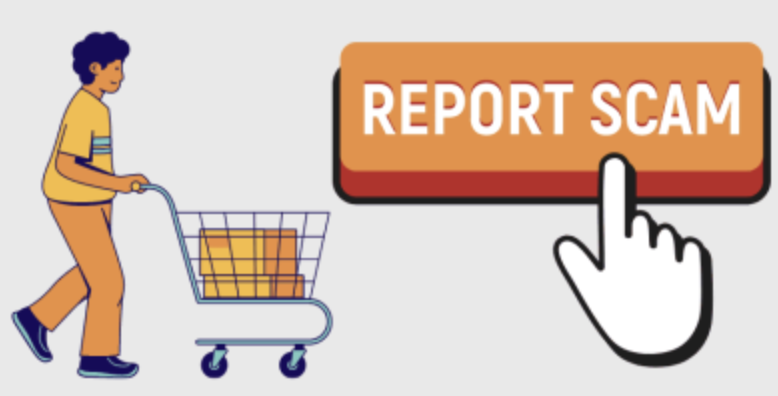
Despite all precautions, sometimes things still go wrong. If you find yourself on the receiving end of a scam, don’t panic—but act fast. Alibaba does offer some dispute resolution tools, and you still have a shot at recovering your money or at least minimizing your losses.
Filing a Dispute Through Alibaba
If your order was placed under Trade Assurance, you can file a dispute directly on the Alibaba platform. Time is critical here. You typically have 30 days after delivery (or expected delivery date) to open a dispute.
Here’s how to go about it:
- Log in to your Alibaba account and go to your order page.
- Click “Open Dispute” on the order in question.
- Provide detailed evidence including:
- Chat records
- Invoices
- Product photos or videos showing defects
- The agreement or product specs you were promised
- Submit your request (you can ask for a full or partial refund).
Alibaba’s dispute resolution team will review your case. Sometimes, they’ll negotiate between you and the supplier. If the evidence is solid, they’ll often issue a refund.
Pro tip: Be calm, factual, and organized. A professional, well-documented case has a much higher chance of success.
Legal Action or Chargebacks
If your payment wasn’t made through Trade Assurance but via credit card or PayPal, you may be able to file a chargeback with your bank or payment provider. This is why traceable payments matter.
You’ll need to:
- Show proof of fraud or misrepresentation
- Submit all correspondence and documentation
- File the claim within the card provider’s deadline (usually 60–90 days)
In extreme cases, you could consider legal action. While suing a Chinese company might sound unrealistic, there are international trade lawyers and arbitration services that specialize in this kind of dispute. It might be worth pursuing if you’ve lost a significant amount.
But here’s the key lesson: prevention is far cheaper than resolution. Always follow the safety steps covered above to avoid ending up in this situation.
Final Thoughts – Smart Buyers Rarely Get Scammed
Alibaba can be an incredible platform for sourcing products at unbeatable prices. Thousands of businesses grow and thrive by importing from suppliers found on this marketplace. But just like walking through a foreign bazaar, you need to keep your wits about you.
Scams happen—not because the platform is inherently unsafe, but because some buyers don’t know the rules of the game. Once you understand the red flags, verification tools, and safety nets available to you, your confidence and success rate increase dramatically.
Here’s a quick recap of how to protect yourself:
- Use Verified Suppliers and prioritize Trade Assurance.
- Never communicate or pay outside Alibaba.
- Request product samples before bulk orders.
- Use inspection services before shipment.
- Start small and scale up once trust is established.
- Document everything with clear agreements.
Being careful doesn’t mean being paranoid. It means being a smart, strategic buyer in a global marketplace. And when you follow these steps, you drastically reduce your chances of ever having to say, “I got scammed on Alibaba.”
FAQs About Got Scammed on Alibaba
1. Is Alibaba a safe platform to buy from?
Yes, Alibaba is safe if you follow the right procedures. Always use Trade Assurance, communicate through Alibaba’s messaging system, and vet your suppliers before placing any orders.
2. What is the most secure payment method on Alibaba?
The most secure method is Trade Assurance, which protects your money by holding it in escrow until you receive your goods and confirm they meet your expectations.
3. How can I verify if a supplier is real?
Look for the “Verified Supplier” badge, request business licenses, ask for factory photos or video calls, and do background checks using Google or sourcing forums.
4. Can I get my money back if I’m scammed?
If you used Trade Assurance, you can file a dispute and potentially get a refund. If you paid via credit card or PayPal, you may also initiate a chargeback.
5. Should I trust suppliers who ask to move the conversation to WhatsApp or email?
No. Always keep communication on Alibaba. Once you move the conversation off-platform, you lose all protection and Alibaba will not be able to help in case of a dispute.

